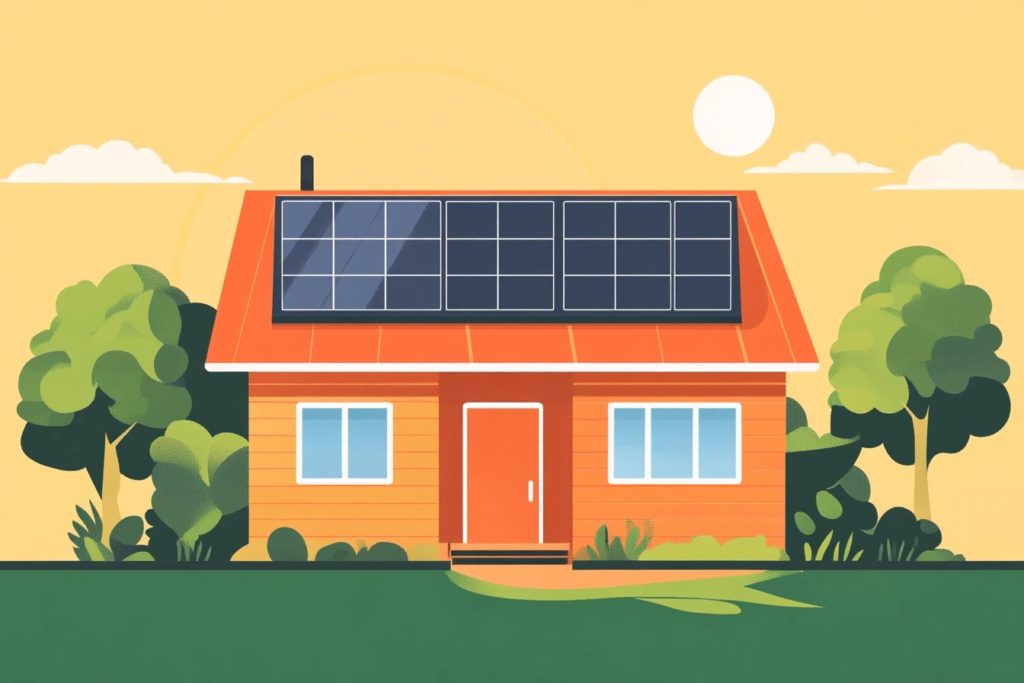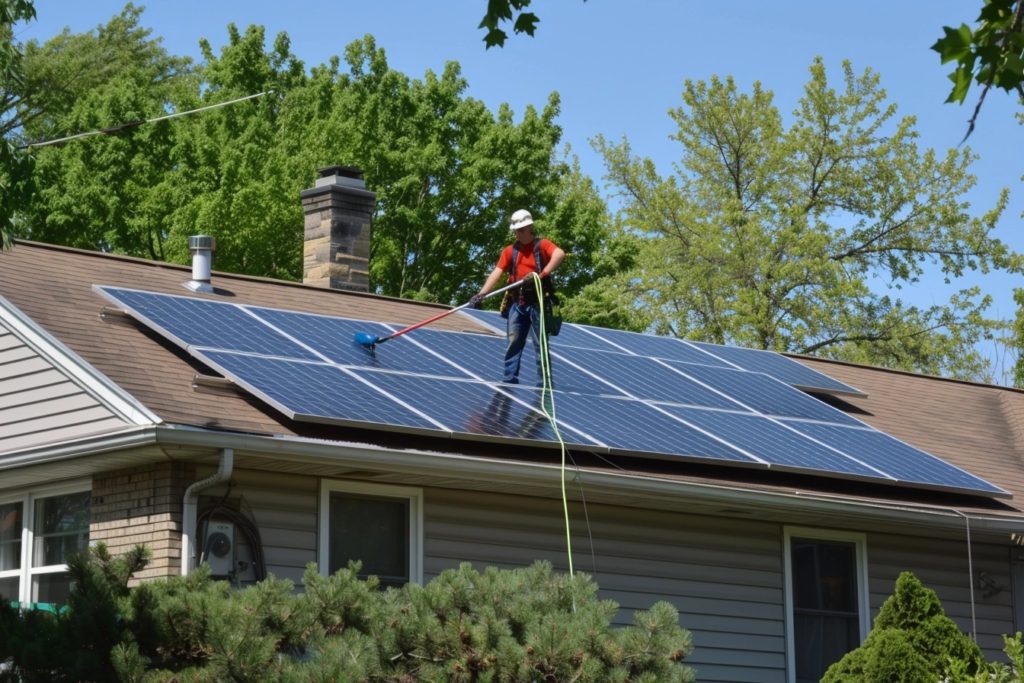
Do Solar Panels Work at Night?
With each passing day, more and more homeowners are installing solar power systems for their homes. People everywhere are taking advantage of the significant cash savings that can come with a residential solar system, and doing your part for the environment is always a great benefit as well. But what happens during the hours when the sun isn’t shining brightly on your solar panels? Do solar panels need direct sunlight? Can the moon charge a solar panel? Do solar panels work on cloudy days? Find out the answers to these questions and more below!
Electricity Generated by Your Solar Panels at Night Is Minimal
Seeing as moonlight is just sunlight reflected off of the moon, you will be happy to hear that the answer is yes: solar panels do technically work with moonlight. However, the electricity generated by your solar panels at night — even when the moon is shining directly on them with no cloud cover — will be extremely minimal. On a clear night with a full moon, you should only expect 0.3% of the energy production that you would experience in direct sunlight.
That means that if your solar panels typically produce 300 watts of power during the daytime, they will only generate roughly one watt in direct, full moonlight. That’s not even close to the amount of energy required to run an ultra-efficient LED light bulb — in fact, you would need roughly 18 times more electricity to operate one lamp with an LED bulb. And that’s with a full moon! For the rest of each moon cycle, your solar panels will produce even less energy from moonlight.
There’s another complicating factor involved when answering the question, “do solar panels work at night?” Most home solar panel systems will enter into “sleep mode” at night, meaning they are not actively producing electricity. In addition, your solar inverter might deactivate if your solar panels are generating such a tiny amount of energy. In other words, the energy levels generated by your solar panels at night are too low for most systems to bother with.
How Your Home Will Be Powered At Night
With this in mind, you may be wondering how your home will be powered at night. There are two common solutions to this issue, and the first one we’ll discuss is solar battery storage units. If you install a solar battery as part of your residential solar power system, you can store the excess energy generated by your solar panels during the day and use it at night. Some solar batteries even enable homeowners to go off-grid entirely, severing their ties with the traditional utility company.
There are many different makes and models of solar batteries for home use — too many to dive into here. When purchasing a solar battery, pay close attention to the power capacity offered by each battery. Choose one that offers sufficient energy to power your house and avoid wasting money on a solar battery that stores more electricity than your home actually uses.
The other way to power a solar home at night is by using net metering, a billing method that has become increasingly popular in the United States. With net metering, you don’t need to have your own energy storage capabilities at home. Instead, you can export the excess energy produced by your home solar system each day into the grid. In exchange, your utility company will give you energy credits.
Then, once night falls and your solar panels stop producing meaningful amounts of energy, you can exchange those credits for power from the grid. Net metering makes powering your home with solar energy easy and largely eliminates the need for a solar battery. Today, the vast majority of American states have net metering laws that require utility providers to provide net metering options for solar customers.
Do Solar Panels Work On Cloudy Days?
How about cloudy days? Do solar panels need direct sunlight? What if it’s raining? The good news is that your solar panels will produce electricity during the day, even when the sun isn’t out. However, you should only expect roughly 15% to 20% of your system’s typical energy output on fully overcast days. Therefore, solar batteries and net metering policies can be highly beneficial even in the daytime, as they prevent you from needing to seek alternative energy sources due to a lack of sunshine.
So, do solar panels work at night? Technically, the answer is yes. After all, moonlight is simply reflected sunlight, and everyone knows that sunlight is what produces energy in your rooftop solar system. However, the amount of power produced is minimal.
LGCY Power Is Here To Help
Do you still have some questions regarding how your solar panels work at night? Are you wondering whether a solar battery or a net metering agreement is the best option for your residential solar power system? The solar energy experts at LGCY Power are here to help!
Our team members have extensive knowledge of net metering regulations in all 50 states. They can help you determine whether you need a solar battery as part of your rooftop solar system or if you can rely on net metering to provide the energy your home requires. In addition, we can help you schedule a consultation with one of our Solar Consultants. They will analyze your home and determine your energy needs, then assist you in choosing the best option.
Setting up your own home solar panel system can save you a tremendous amount of money compared to paying traditional utility bills, even if you’re not getting any meaningful production from your panels at night. Contact LGCY Power to learn more!




